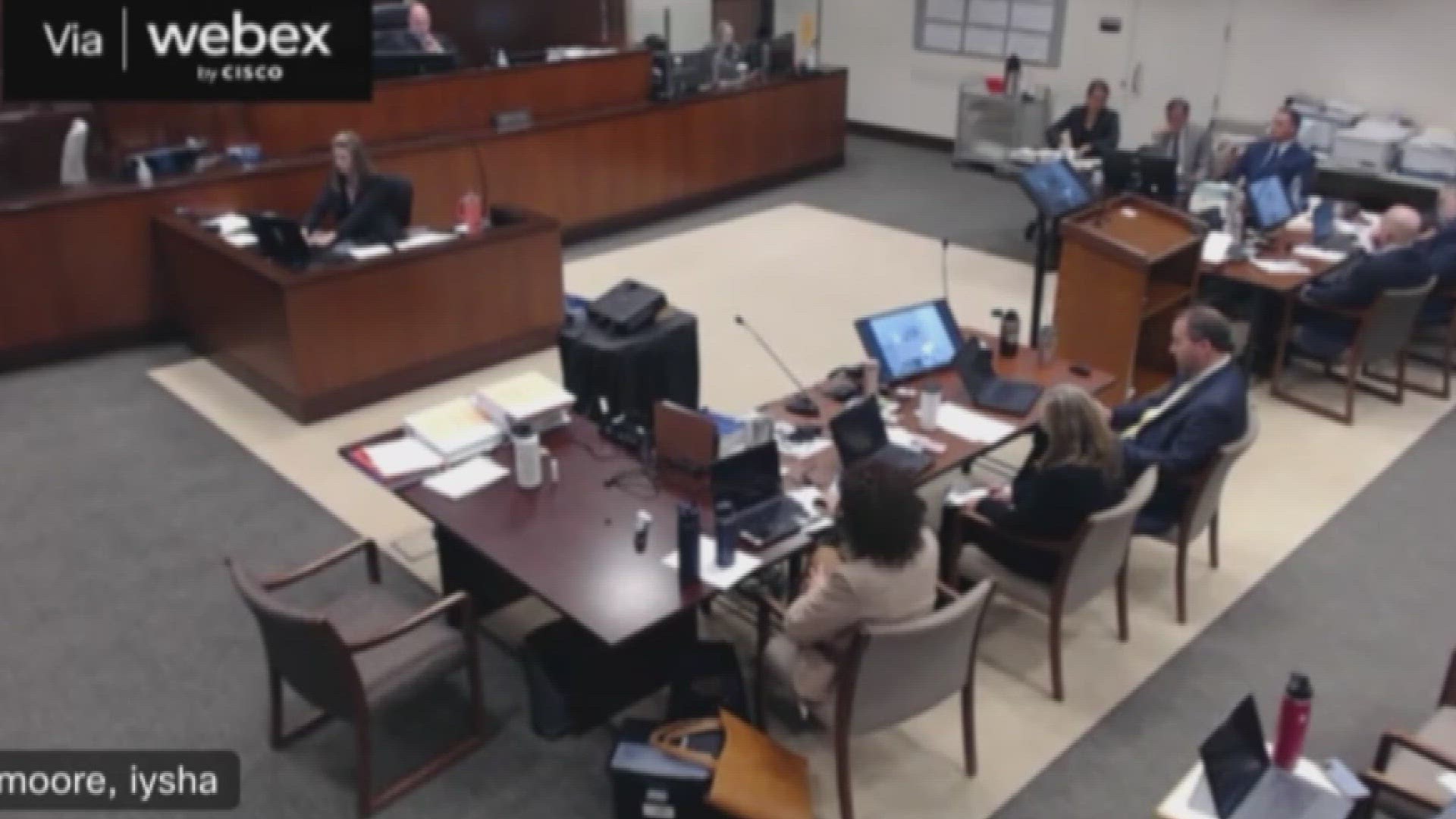BRIGHTON, Colo. — Two paramedics on trial in Elijah McClain’s death made statements in 2019 police interviews that contradict body camera footage prosecutors have played for the jury.
Those interviews played for nearly two hours Wednesday morning in a hushed Adams County courtroom during what turned out to be a short day of testimony.
Just before the lunch break, the judge learned that one juror may have COVID-19 and called off court for the rest of the day. Then late in the afternoon, it was announced that testimony would not resume until 8:30 a.m. Friday.
Aurora Fire Rescue paramedics Peter Cichuniec and Jeremy Cooper each face a charge of reckless manslaughter and multiple counts of assault in the death of McClain, who a 911 caller said was wearing a mask and seemed “sketchy.” Responding Aurora police officers stopped him, restrained and subdued him – and then Cichuniec and Cooper injected him with the sedative ketamine, which has been blamed for his death.
Aurora police investigator Matt Ingui testified that he interviewed Cichuniec and Cooper on Sept. 11, 2019 – 18 days after the incident.
At one point in the recording, Ingui asked Cichuniec whether he communicated with McClain.
“He wouldn’t speak to us,” Cichuniec responded.
The investigator asked a similar question of Cooper.
“There was a couple times that I approached the patient, tried to ask him some questions as far as a name, any kind of medical problems, but never got any sensical language back as an answer,” Cooper said.
Prosecutors have alleged that neither Cichuniec nor Cooper ever attempted to assess McClain’s medical condition before giving him a potentially deadly drug – and that they failed to take even the most basic step of trying to talk to him.
And body camera footage played for the jury showed that the closest the paramedics got to talking to McClain was when Cooper asked the officers subduing him whether “he speaks English or anything like that?”
“He speaks English,” one of the officers responded.
Cichuniec and Cooper talked extensively about their decision to administer ketamine.
That decision came after they concluded that McClain was exhibiting signs of so-called “excited delirium,” a term used to describe an out-of-control person who isn’t responding to others – for reasons that could include the use of drugs or mental illness.
Prosecutors allege what was actually happening was McClain’s response to officers putting him in a carotid neck hold, cutting off oxygen to his brain. After that, McClain vomited, inhaled some of it, and experienced a drop in oxygen in his body and a spike in acid in his bloodstream, according to previous testimony. That series of events left him gasping for air and saying repeatedly that he could not breathe.
Then the paramedics injected him with 500 milligrams of ketamine – enough for someone who weighed 220 pounds. McClain weighed 140 pounds.
“What effects can you notice on the patient once the drug had been administered to him?” Ingui asked at one point.
“He wasn’t fighting as much, starting to ramp down,” Cichuniec said.
The investigator asked a similar question of Cooper.
“While you were administering it, do you remember what the patient was doing?” he asked.
“Still actively fighting,” Cooper said. “Any time that the patient would try to be placed kind of on his side, he would try to walk up the little grassy embankment, try to fight with the officers.”
The body camera footage shows McClain on the ground, with officers on him, appearing to be unresponsive before the injection – and showing little reaction to the actual shot.
Cichuniec and Cooper are the final two of five first responders to be tried for their actions in McClain’s death.
If convicted of all charges, each could face a sentence ranging from probation up to 16 years in prison.
Officers Nathan Woodyard, Jason Rosenblatt and Randy Roedema stopped McClain as he walked down along an Aurora street, heading home with three cans of iced tea he’d purchased at a nearby convenience store.
Within seconds, the officers had their hands on McClain and at one point Roedema yelled out that McClain had tried to grab Rosenblatt’s gun – an assertion prosecutors have repeatedly disputed.
SUGGESTED VIDEOS: Elijah McClain death

